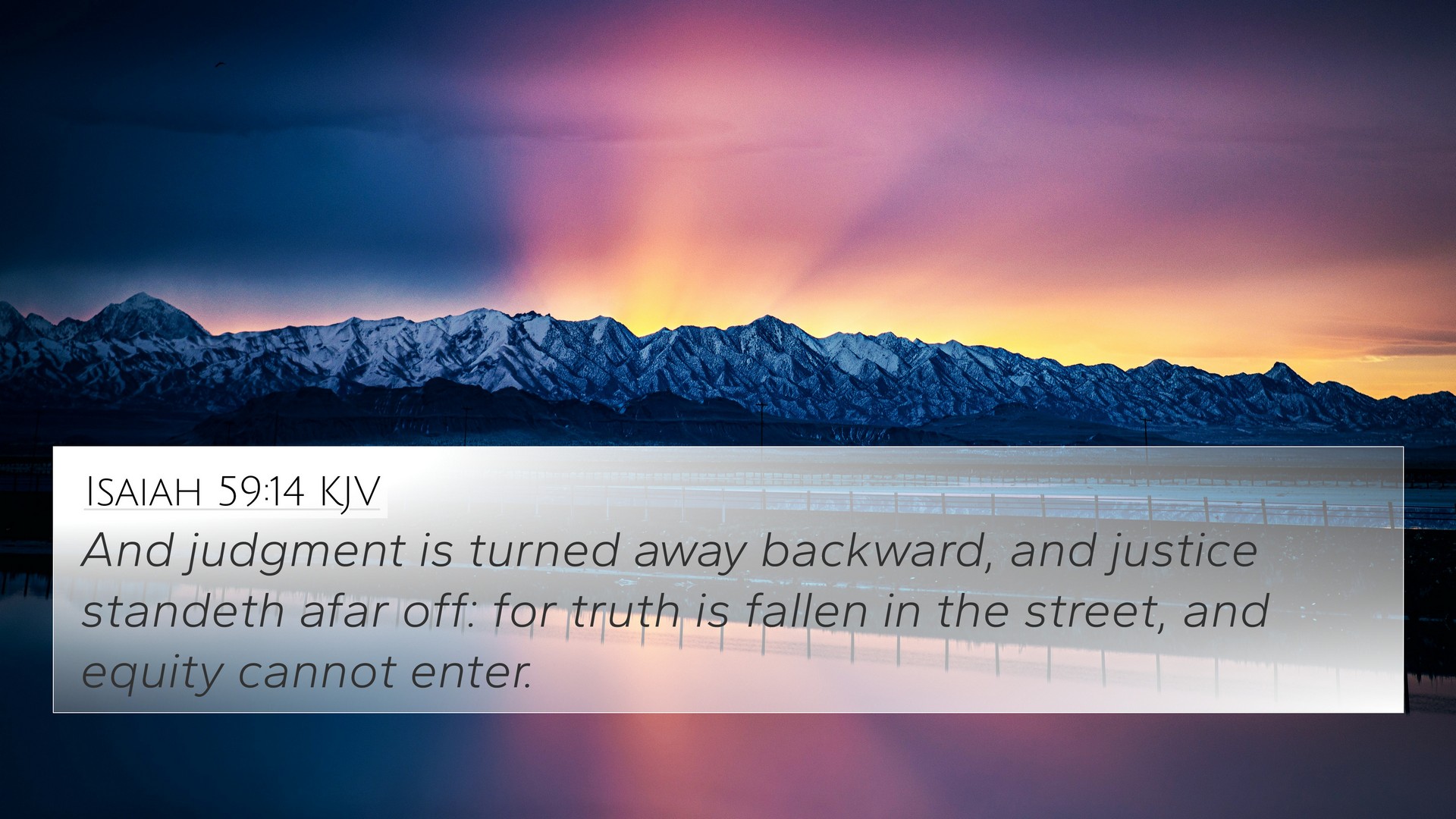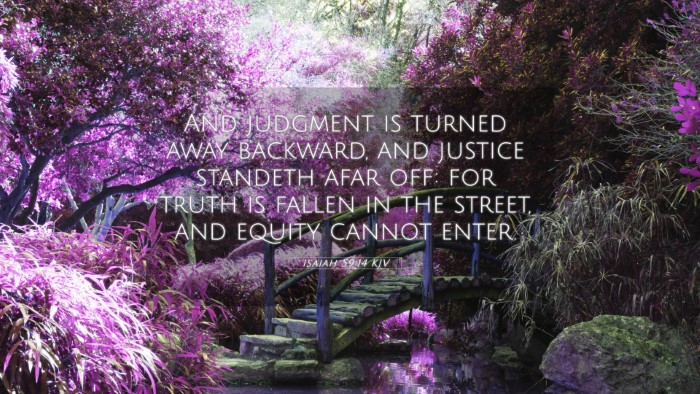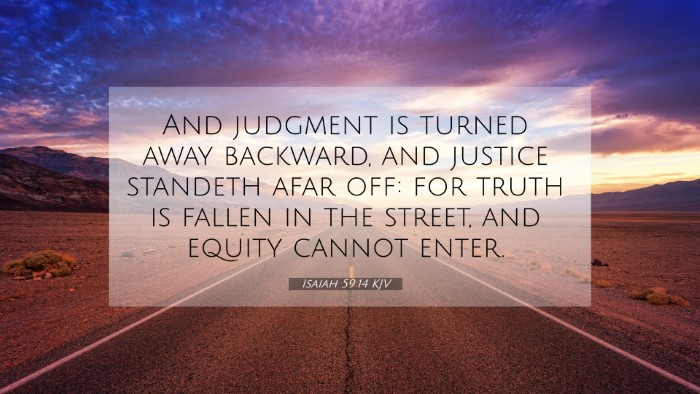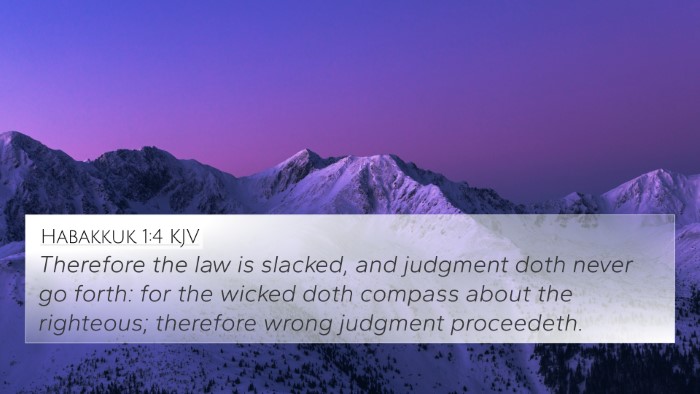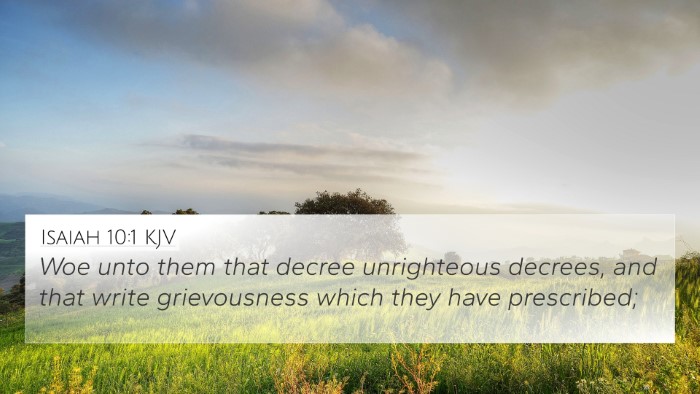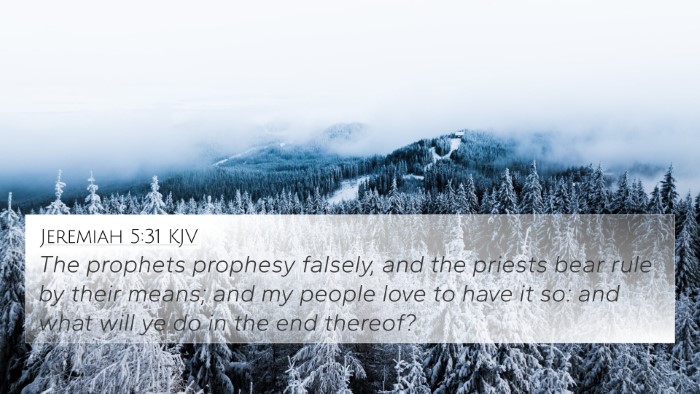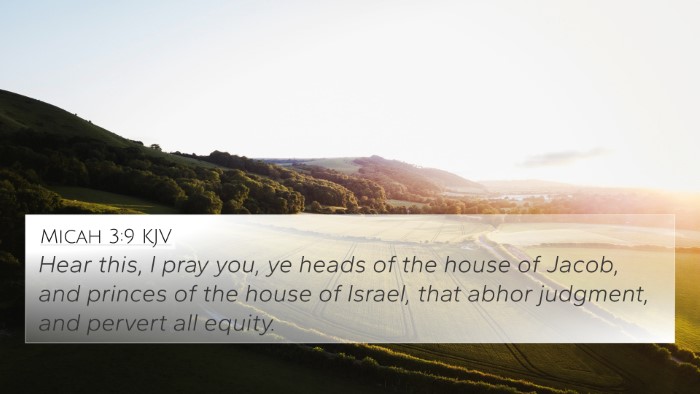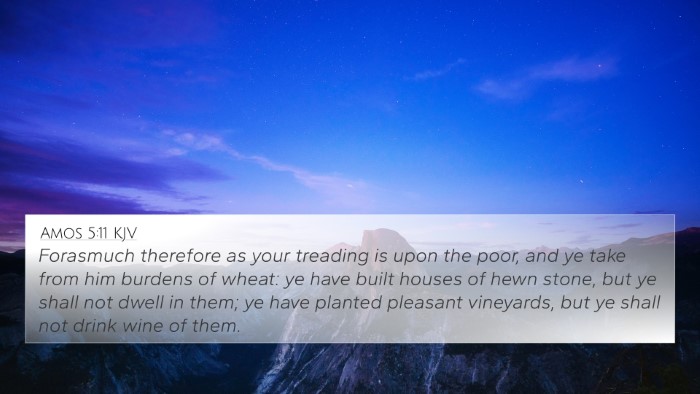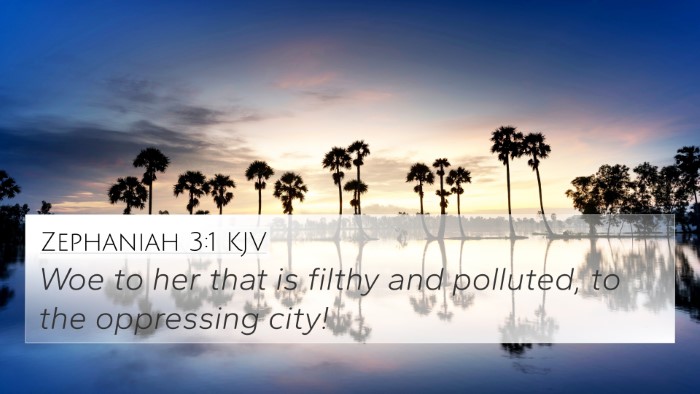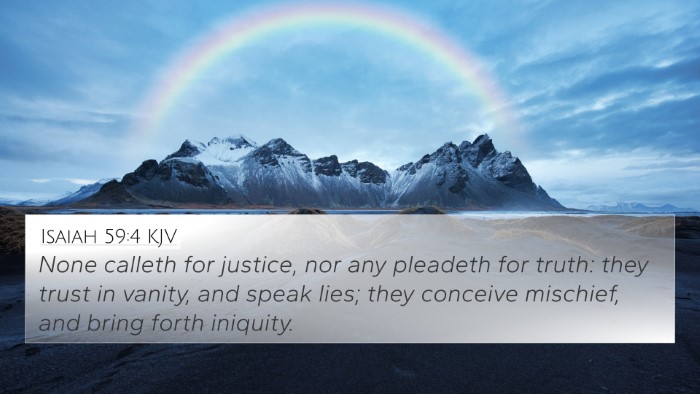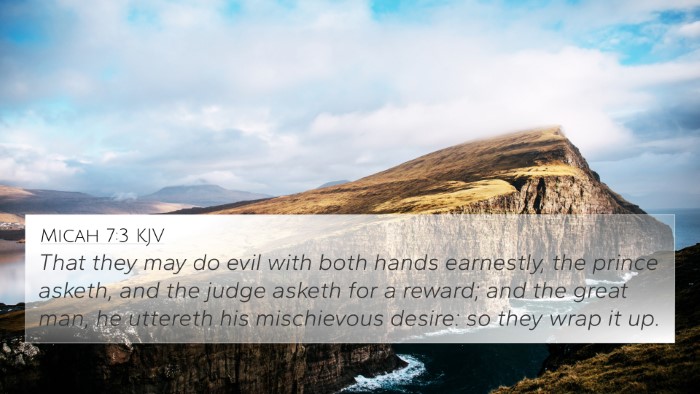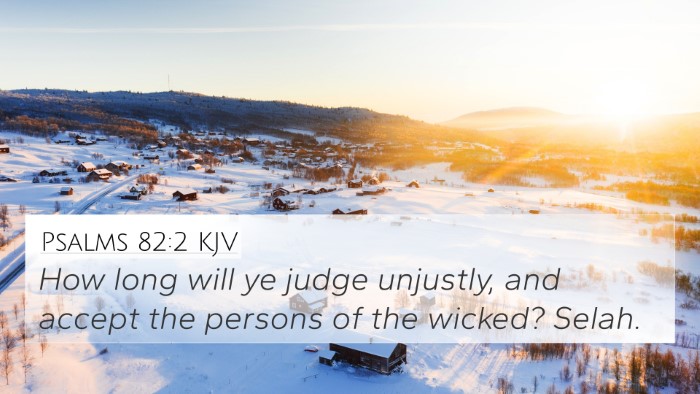Understanding Isaiah 59:14
This verse, Isaiah 59:14, states:
"And judgment is turned away backward, and justice standeth afar off: for truth is fallen in the street, and equity cannot enter."
Summary of Meaning
Isaiah 59:14 highlights the disarray in justice and truth within the nation of Israel. The prophet Isaiah laments that righteousness and fairness have been disregarded, leading to a moral and ethical crisis. This verse serves as a poignant reflection on the failures of societal structures to uphold justice and equity.
Insights from Commentaries
- Matthew Henry: Henry emphasizes the gravity of the situation. He notes that when justice is obscured and truth is abandoned, society suffers deeply. The phrase "judgment is turned away backward" suggests a reversal of what is right, indicating a state of confusion and moral decline.
- Albert Barnes: Barnes elaborates on the implications of "truth is fallen." He argues that this signifies a widespread acceptance of lies and deceit within society. The absence of justice indicates that God’s people have strayed from the path of righteousness, prompting divine discontent and a call for repentance.
- Adam Clarke: Clarke reflects on the imagery employed in this verse, interpreting the street as a place where truth is meant to reign yet is instead trampled and disregarded. He highlights that the failure to maintain justice leads to God’s disfavor, urging believers to seek realignment with divine principles.
Bible Cross-References
This verse resonates with several other biblical passages that explore themes of justice, truth, and societal integrity. Here are key cross-references:
- Proverbs 29:26: "Many seek the ruler's favor; but every man's judgment cometh from the LORD." This reinforces the idea that true justice comes from God, not human authority.
- Psalm 82:3-4: "Defend the poor and fatherless: do justice to the afflicted and needy." This passage echoes the call for justice and the protection of the marginalized.
- Micah 6:8: "He hath showed thee, O man, what is good; and what doth the LORD require of thee, but to do justly, and to love mercy, and to walk humbly with thy God?" A comprehensive view of expectations for moral conduct.
- Jeremiah 22:3: "Thus saith the LORD; Execute ye judgment and righteousness, and deliver the spoiled out of the hand of the oppressor..." A serious exhortation to uphold justice.
- Isaiah 1:17: "Learn to do well; seek judgment, relieve the oppressed..." This verse calls for active engagement in seeking justice and equity.
- John 8:32: "And ye shall know the truth, and the truth shall make you free." This relates to the liberation found in truth, contrasting the fallen state described in Isaiah 59:14.
- Romans 1:18: "For the wrath of God is revealed from heaven against all ungodliness and unrighteousness of men..." This verse discusses the divine response to injustice, akin to the context of Isaiah's lament.
Thematic Connections
The message of Isaiah 59:14 is interwoven with themes prevalent throughout scripture:
- Justice: Several passages insist on God's desire for justice, reflecting a consistent expectation throughout both the Old and New Testaments.
- Truth and Integrity: The contrast between truth and falsehood is a key biblical theme, with implications for personal and communal ethics.
- Divine Judgment: The correlated passages often address the consequences of societal neglect toward justice and truth, framing God's judgment as a response to moral failure.
- Call to Righteousness: Striking parallels exist with God's persistent call to His people to restore righteousness, a recurring motif through the prophetic literature.
Conclusion
In conclusion, Isaiah 59:14 serves as a powerful indictment of societal decay in the realm of justice and truth. Through the combined insights of recognized biblical commentators, we understand the profound implications of this verse for both the historical context of Israel and for contemporary society. By employing the principles of cross-referencing biblical texts, one may gain a richer understanding of the interconnectedness of these themes across scripture.
Further Study
For anyone looking to dive deeper into cross-references and thematic connections in the Bible, utilizing tools such as a Bible concordance or a cross-reference guide can be incredibly helpful. Engaging in cross-reference Bible study methods allows believers to explore the vast web of interconnected scriptural wisdom.
